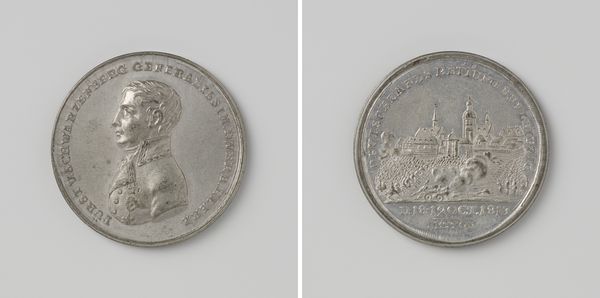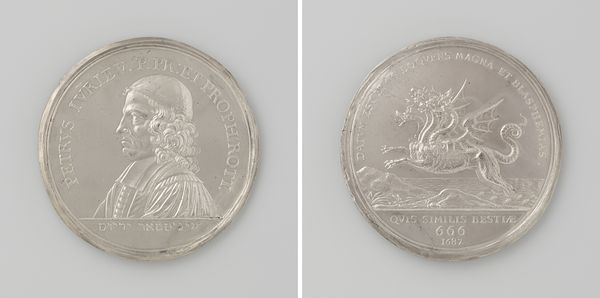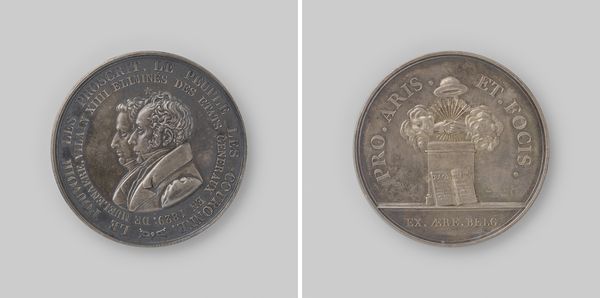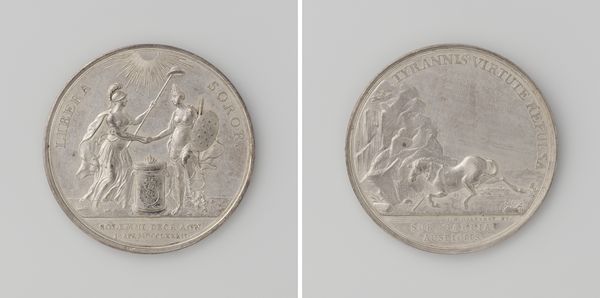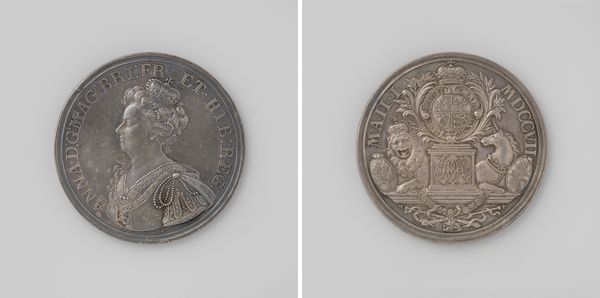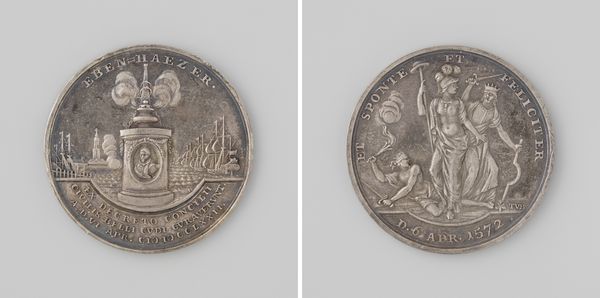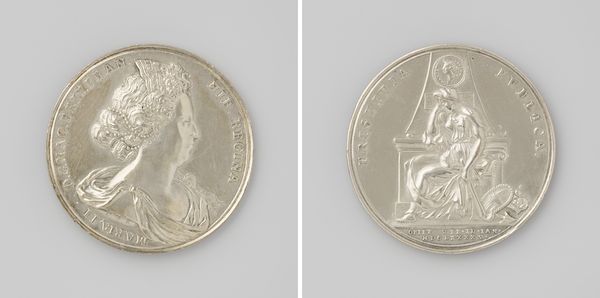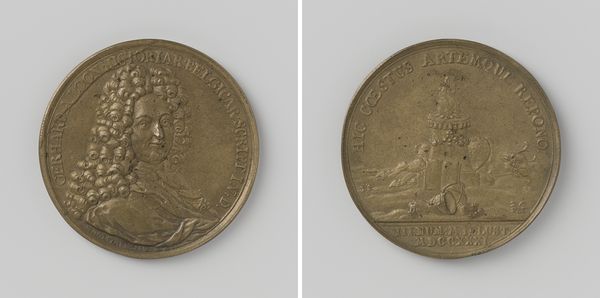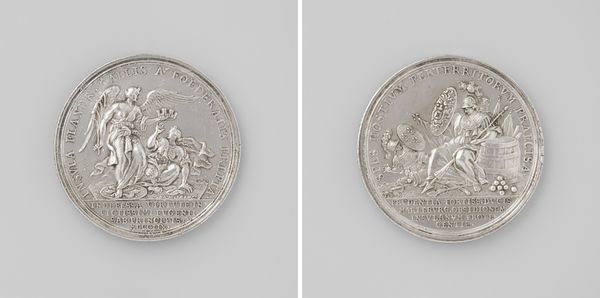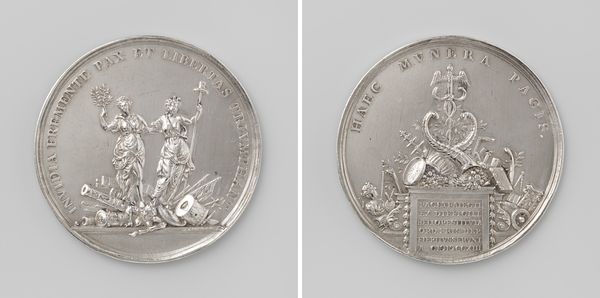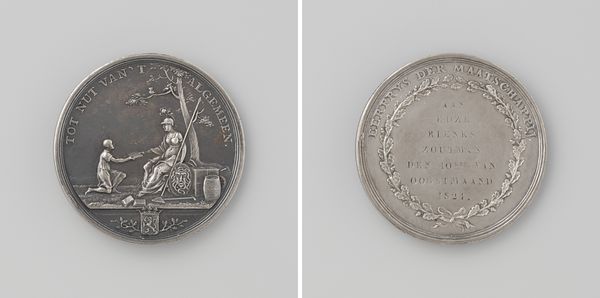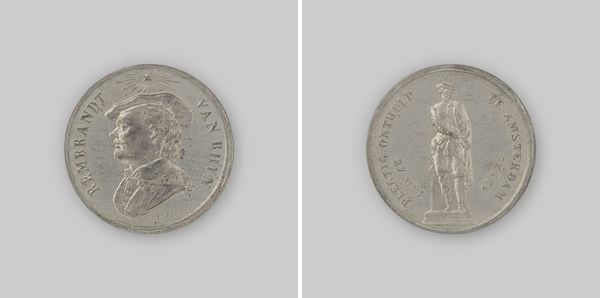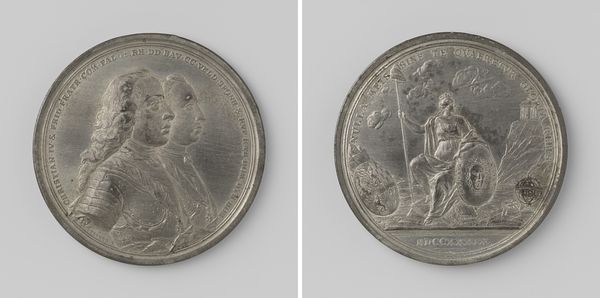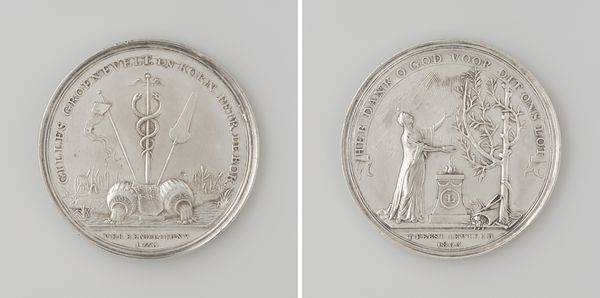
Slag bij Kamperduin, ter ere van Adam Duncan, admiraal van de Britse vloot 1797
0:00
0:00
anonymous
Rijksmuseum
metal, relief, sculpture, engraving
#
portrait
#
neoclacissism
#
metal
#
relief
#
sculpture
#
engraving
Dimensions: diameter 3.8 cm, weight 236 gr
Copyright: Rijks Museum: Open Domain
Editor: So, this piece is called "Slag bij Kamperduin, ter ere van Adam Duncan, admiraal van de Britse vloot," created around 1797. It looks like a metal relief or engraving, celebrating a naval victory. It’s striking how this small object commemorates such a grand event, do you find similar artwork intriguing? Curator: Indeed. Medals and coins such as this often condense complex political and cultural narratives into miniature forms. Have you considered what these symbols - Britannia triumphant, the Admiral’s portrait - meant to the people of that time? These weren't just representations, but carefully chosen icons that resonated with their shared values and history. Editor: I see your point. Britannia clearly represents Great Britain. What do you make of its visual association with a lion? Curator: Precisely. The lion is an ancient symbol of courage, strength, and nobility – immediately associating Britannia with those qualities. In heraldry, these symbols create meaning beyond their simple image. But how does understanding this iconography alter your reading of the work? Editor: I guess it gives the medal a stronger sense of power and legitimacy. The imagery reinforces Britain's dominance, but also connects the victory to older, established ideas about national identity. Curator: Exactly. This medal is more than a historical record; it is an exercise in shaping cultural memory. Understanding the weight these symbols carried helps us understand the impact of the event itself, doesn’t it? Editor: That’s a great point. Thinking about it as a memory object, packed with symbolic meaning, is fascinating. Curator: Agreed. This medal helps us remember the power of iconography as more than a collection of images; but as a language through time, where meaning is shared and shaped, wouldn’t you agree?
Comments
No comments
Be the first to comment and join the conversation on the ultimate creative platform.
